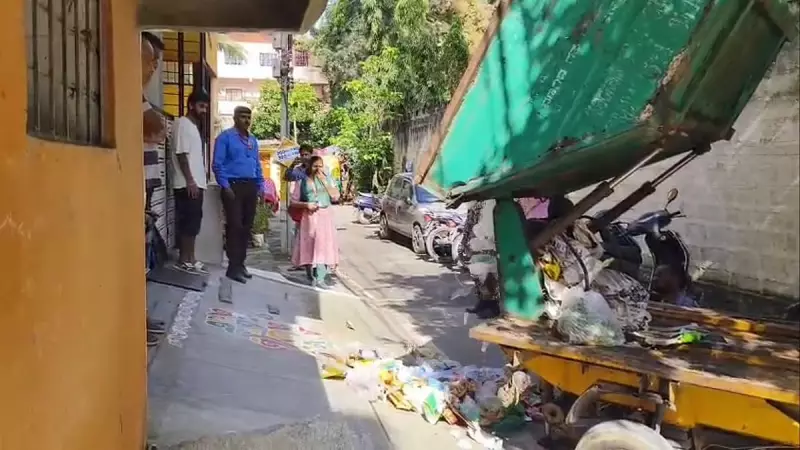
In a dramatic escalation of Bengaluru's ongoing battle against improper waste disposal, residents have taken matters into their own hands by dumping garbage outside the homes of those who litter public spaces. This controversial form of vigilante justice has sparked intense debate across the city about the limits of civic enforcement.
The Unconventional Cleanliness Drive
Fed up with persistent littering in their neighborhoods, several resident welfare associations have adopted this radical approach. When individuals are caught dumping waste in unauthorized areas, volunteers collect the garbage and deposit it directly outside the offender's residence with a warning notice.
"We've tried everything," explains a resident from Whitefield. "Complaints to BBMP, warning signs, fines - nothing worked. This method gets immediate attention and makes people think twice before littering."
Divided Public Opinion
The tactic has created a sharp divide among Bengalureans. Supporters argue that conventional methods have failed and this shock treatment is necessary to combat the city's growing waste management crisis.
However, critics raise serious concerns about the approach. "This creates more problems than it solves," says a social activist from Koramangala. "Instead of fostering community responsibility, it promotes retaliation and could lead to conflicts between neighbors."
Broader Implications for Urban Governance
Urban planning experts suggest the situation highlights deeper systemic issues in Bengaluru's waste management infrastructure. The city generates approximately 5,000 metric tons of solid waste daily, often overwhelming municipal systems.
The controversy raises important questions about:
- Community-led enforcement versus official systems
- Balancing immediate results with long-term behavioral change
- The role of citizen participation in urban governance
- Alternative solutions to the waste management crisis
The Way Forward
While the immediate effectiveness of this method is undeniable, urban planners suggest that sustainable solutions require improved municipal services, better public awareness campaigns, and accessible waste disposal facilities. The BBMP has acknowledged the public frustration but urges residents to work through official channels.
As Bengaluru continues to grapple with its waste management challenges, this incident serves as a stark reminder of the growing gap between citizen expectations and municipal capabilities in India's rapidly expanding urban centers.





